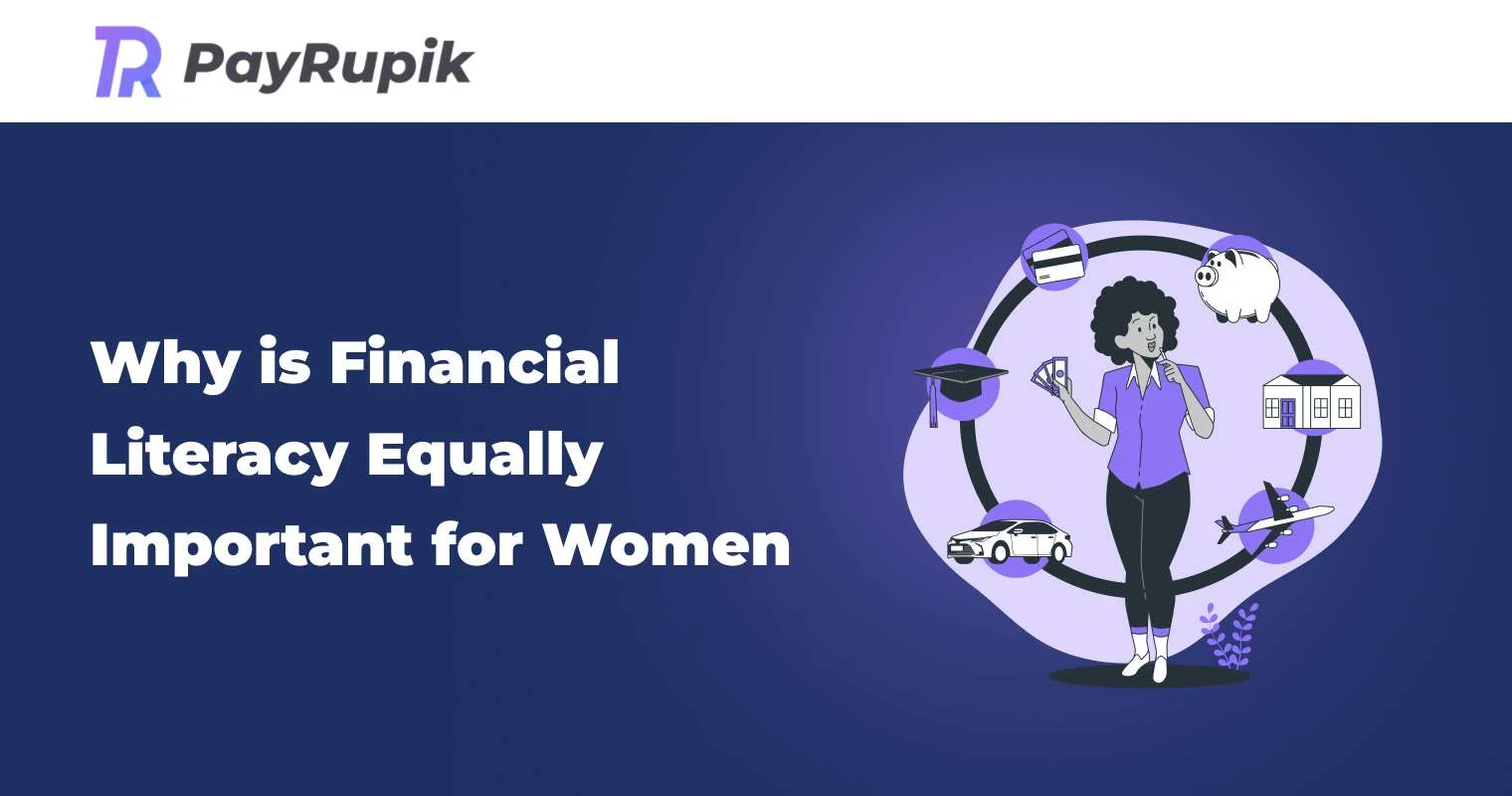Loan Approval with Low Income and High Debt: Tips That Work
- November 29, 2025

May 22, 2025
Table of Contents
ToggleAre finances only limited to men? No! Do only men earn money? Obviously, not! Then, isn’t financial literacy equally important for both men and women? This time your answer will be a ‘Yes’. Financial education for women holds the same weight as financial independence for women. You may deny this but women face challenges like the gender pay gap, career breaks, and even overlapping responsibilities. In between all these, learning about financial concepts can help women to achieve financial independence with ease and secure their future. Now you know why we made the ‘same weight’ remark earlier.
What can proper financial education do to women? It can help with better women wealth management, economic stability for women, and even improve retirement planning for women. So, every woman reading this, this is your time to understand the underlying importance of financial literacy.
Most of you may already know what financial literacy is and even if you don’t, you must have got an idea of what these words mean. Still, in layman’s language, financial literacy refers to the ability to understand and manage financial resources in an effective manner. It includes knowledge about budgeting, saving, investing, debt management, and retirement planning. For women, financial literacy is a powerful tool that helps them to make the correct financial decisions, secure their future, and contribute to their families’ financial well-being.
Financial literacy is a crucial aspect of women’s financial empowerment. By gaining financial knowledge, women can secure their futures, manage their wealth efficiently, and achieve economic independence. Investing time in financial education helps women plan for retirement, manage debt, and make sound financial decisions. Women should take proactive steps to educate themselves on financial matters and seek resources to enhance their financial skills.
Financial literacy, in simple terms, refers to understanding financial concepts such as saving, investing, budgeting, and borrowing. It is important for women as it helps them gain financial independence, secure their future, and manage their wealth well.
Financial literacy empowers women by enabling them to make informed financial decisions, manage their money effectively, and build a secure future. It helps them achieve financial independence and economic stability.
Women face unique financial challenges due to factors such as the gender pay gap, career breaks, credit score disparities, and overlapping responsibilities. These issues make financial literacy even more critical for women.
Women can start their financial education journey by reading financial books, attending workshops, using online resources, and seeking financial advice from professionals. Learning about savings, investment, and credit management is a great first step.
Customer Service Number
022489-30118
Email: [email protected]
© 2026 PayRupik All rights reserved.
Leave a comment